How NYC Subway, LIRR, and Metro-North Responds to Snowstorms
Snow blowers, throwers, plows, and more specialized equipment help keep NYC moving in the snow!


One of the most fascinating things we shared in our recent article on The Roosevelt Hotel is about a secret passageway below the hotel that once connected the hotel to Grand Central Terminal. While the hotel side of this tunnel has long been closed off, we recently discovered the forgotten other side which emerged into Grand Central. This type of amenity offering direct access to transportation hubs was fairly common when The Roosevelt Hotel was built — the New Yorker Hotel had an underground passageway directly into Penn Station and the Woolworth Building‘s basement had access into the subway.
If you look at the below map, you can see the series of tunnels (shown in hatched lines) that were created as part of Terminal City, a vast network of hotels and office buildings that connected to Grand Central. This map was created in 1917 during the first phase of construction for Terminal City, which lasted between 1908 and 1918. The Roosevelt Hotel at 45 E 45th Street was not built yet and is a block north of where this map ends.
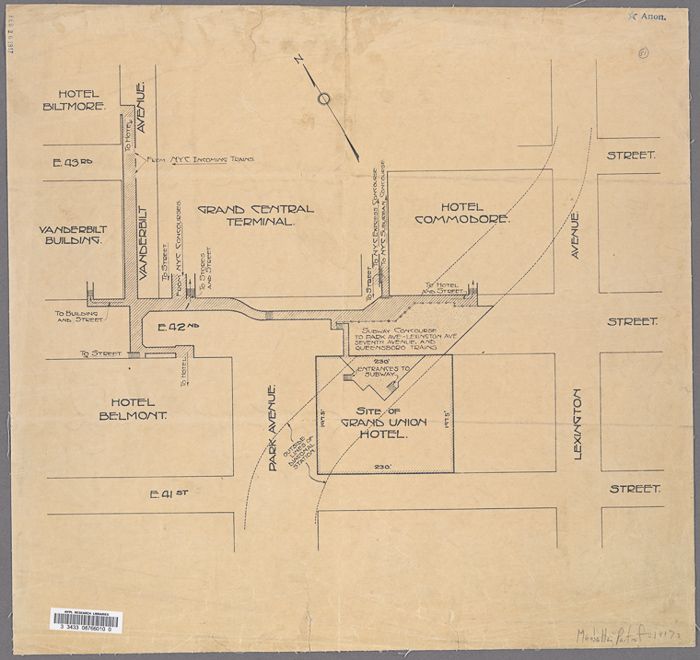
A map of the tunnels around Terminal City and Grand Central. The Roosevelt Hotel is a block north of where this map ends so is not shown. Image from New York Public Library Digital Collection
The hotel, opened in 1924, was part of the second phase of Terminal City’s construction between 1920 and 1931 and included such buildings as the Waldorf-Astoria Hotel, the Graybar Building, 277 Park Avenue (where JFK would have his campaign office) and more. This investment underground, and the extension of it as Terminal City expanded, makes sense. Reed & Stem, accompanied by engineer William W. Wilgus, imagined a much more extensive Terminal City — covering dozens of city blocks up Park Avenue. World War II put an end to that grand vision.
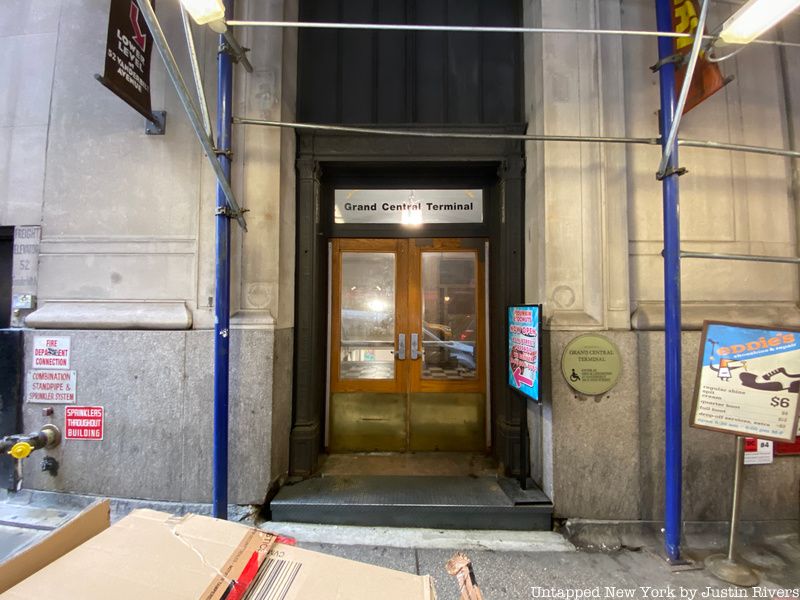
Another forgotten underground passageway that is not shown on this map was built under 52 Vanderbilt Avenue, the Vanderbilt Concourse building (also known as the Manhattan Savings Bank Building) between 44th and 45th Street. The Manhattan Savings Bank was the anchor tenant of the building, with a branch on the ground floor. Today, you can still access this tunnel, entering through double wooden doors on 45th Street just off Vanderbilt Avenue. The glass transom window says “Grand Central Terminal,” letting the visitor know access to the train hub is available through this building. From the handsome entrance vestibule, which has Grand Central-esque ornate moldings and door frames, you take one set of marble-lined stairs down to the passageway.
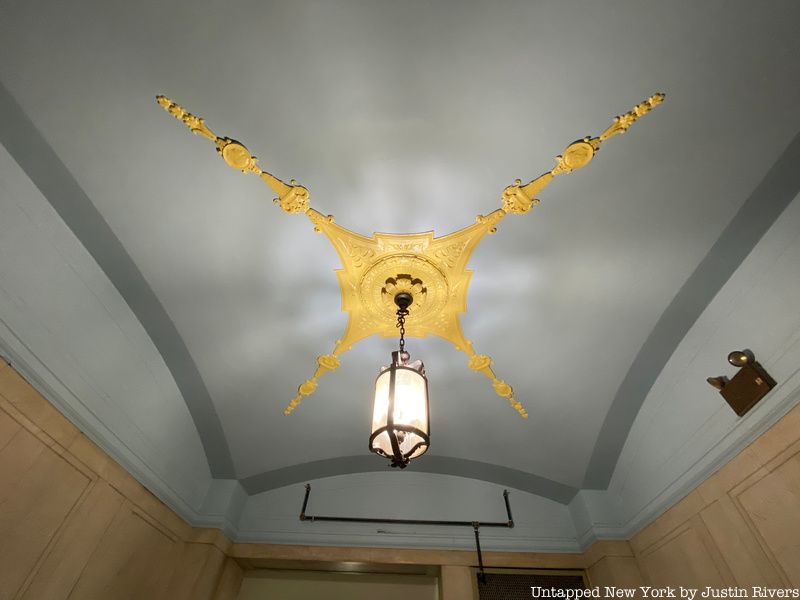
Molding just inside the entrance vestibule in the Vanderbilt Concourse building
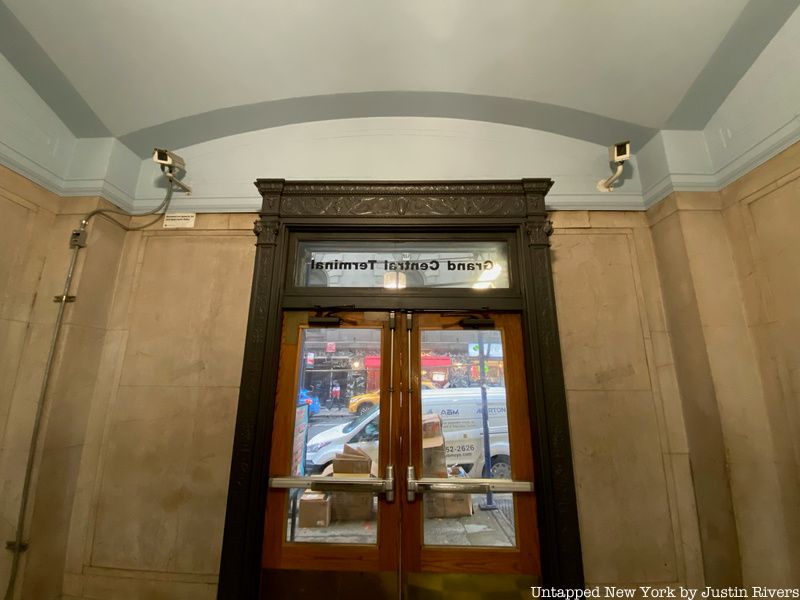
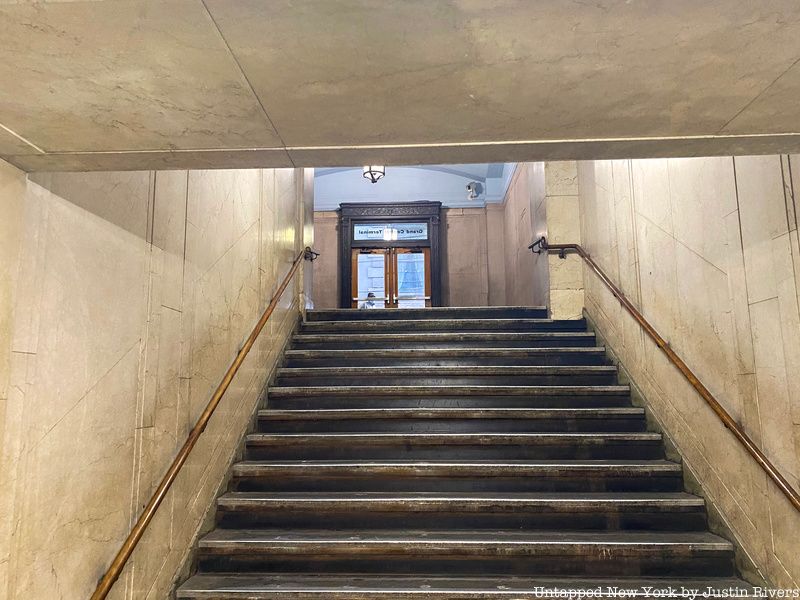
The stairs down to the underground passageway to Grand Central
The tunnel runs south for a short stretch, turns east, and hits the 45th Street Passage inside Grand Central. There are some interesting relics within this passageway, including Manhattan Savings Bank drop boxes, now repurposed as advertising frames for Dunkin’ Donuts and the ammos Greek seafood restaurant inside 52 Vanderbilt Avenue. There’s also a more recent graffiti mural with the word “love” repeated over and over by street artist Chris Riggs.
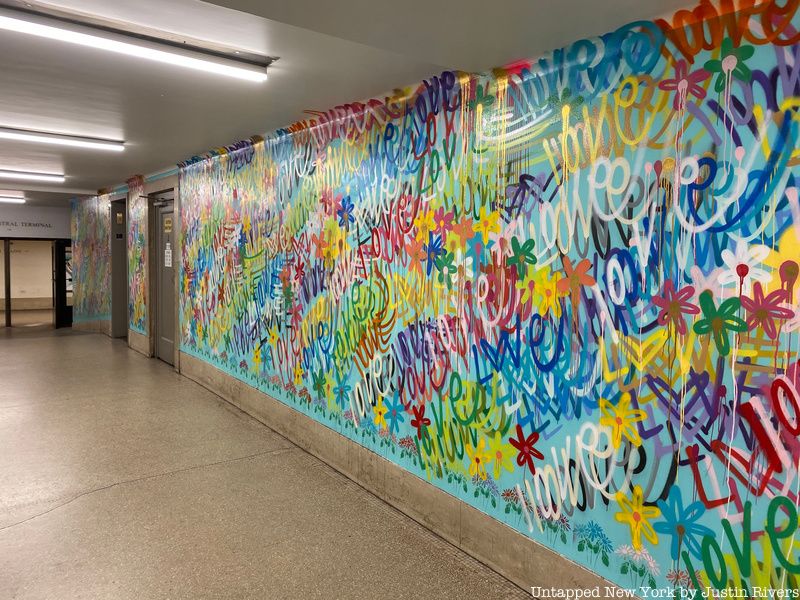
Looking towards the 45th Street Passage
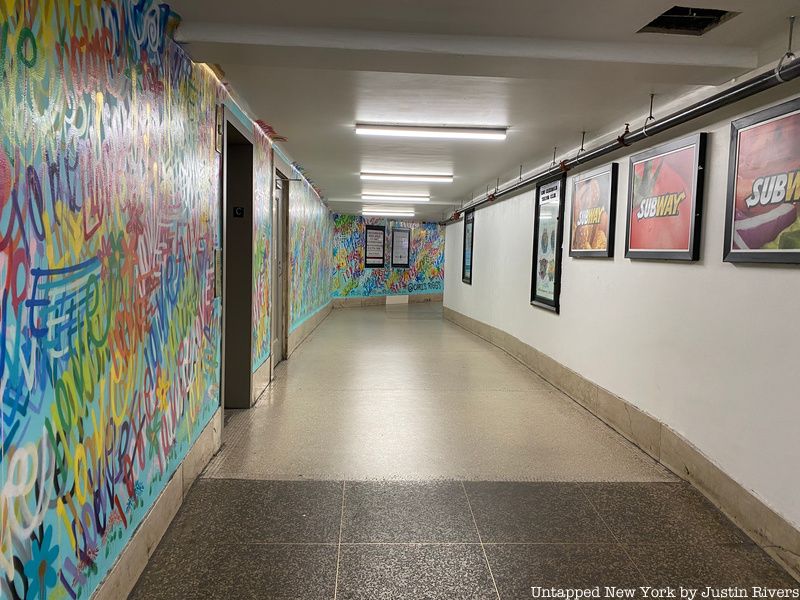
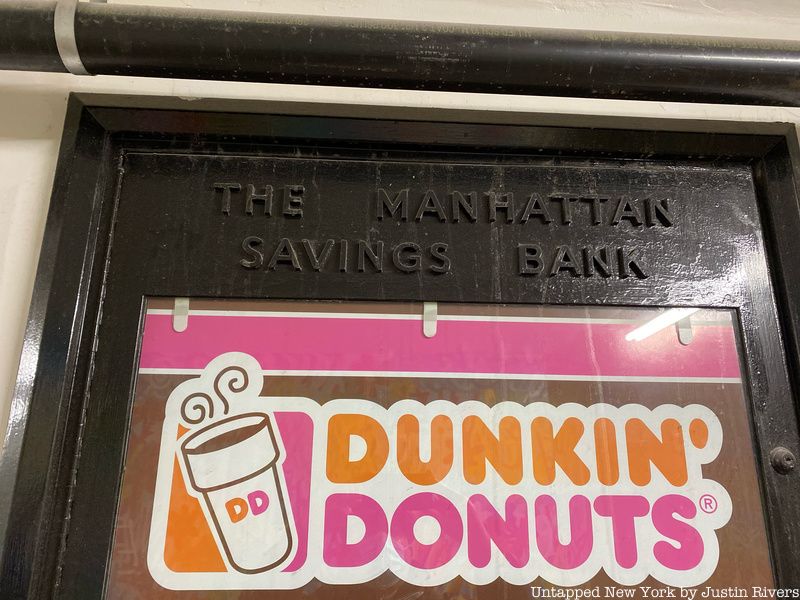
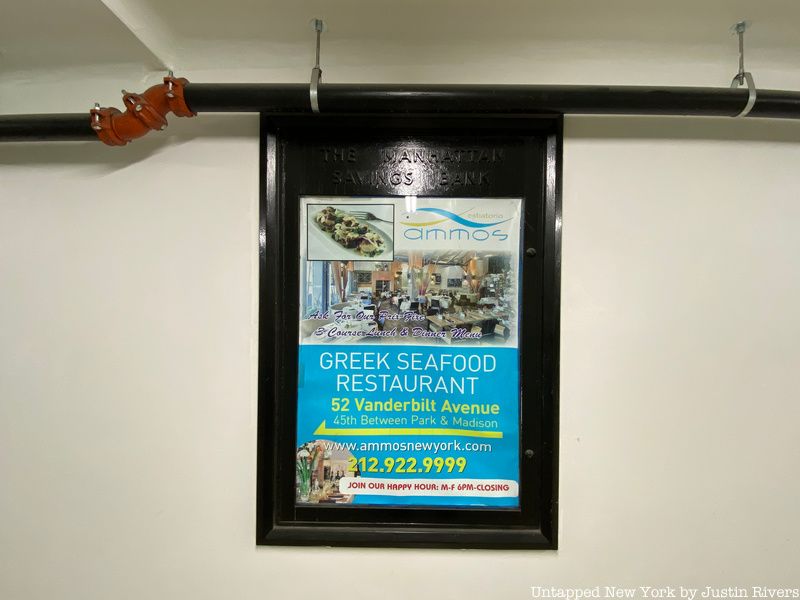
If you turn left at this point, where the Vanderbilt Concourse passageway meets the 45th Street Passage, you will see a boarded up entranceway with a makeshift wooden door with a lock and orange construction cones. Handwritten are some warnings: Do Not Enter. No Exit! and Construction Zone. This is what we’ve been looking for! If you could go past this boarded up wall, you would enter the lost tunnel to the Roosevelt Hotel. It continued to run north under Vanderbilt Avenue until there was access into The Roosevelt Hotel’s basement.
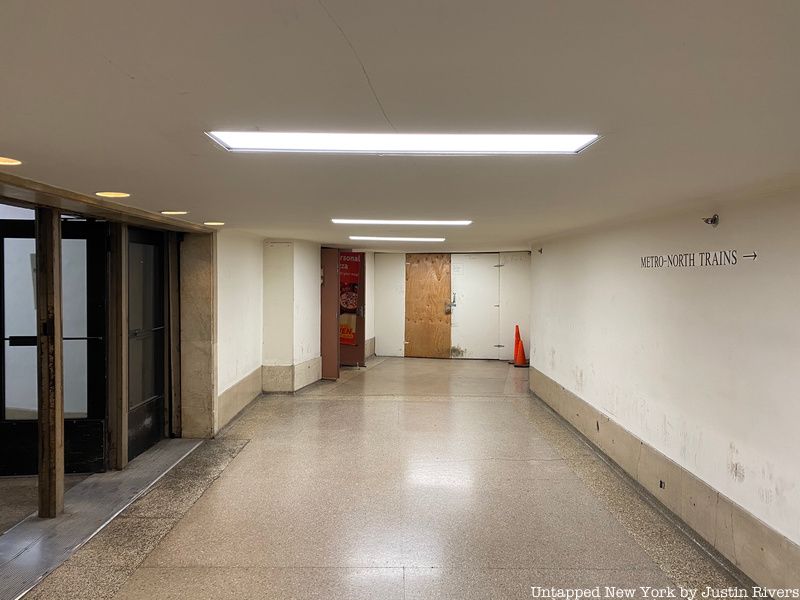
The open doors on the left lead to the Vanderbilt Concourse/Savings Bank of Manhattan passageway. The wooden door led into the former Roosevelt Hotel passageway. And the door with the pizza ad leads into the Subway sandwich shop.
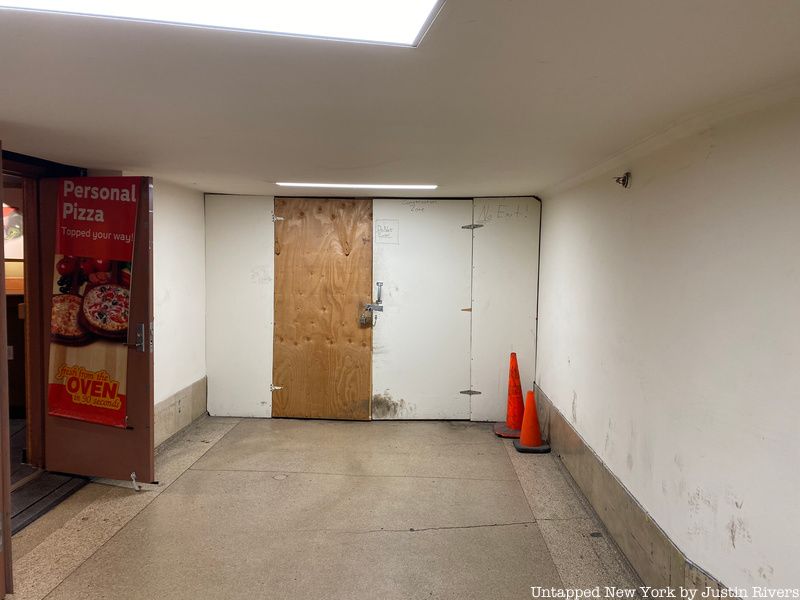
Within The Roosevelt Hotel, there are two potential known entrances into the tunnels. Gothamist has some photographs of a closed off portion, which was once accessed “to the side the hotel’s lobby.” Another is down a staircase via the shopping corridor one level below the lobby (in photo above).
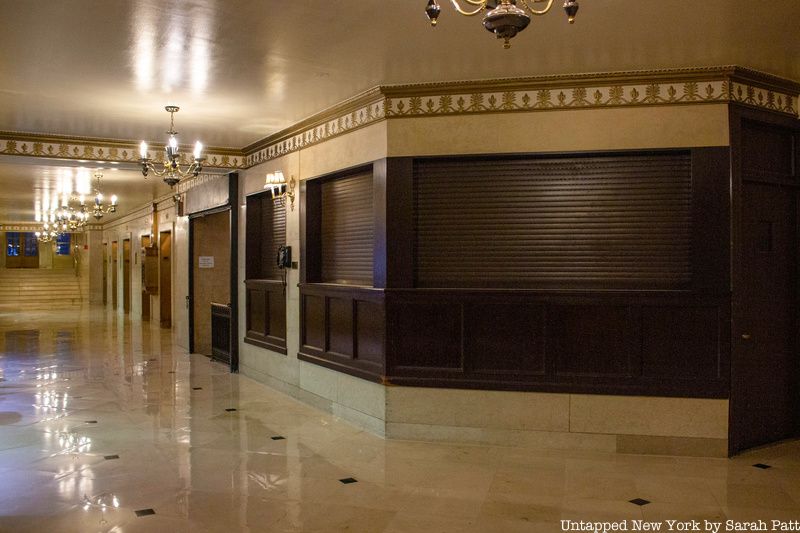 To the left of the roll down shutters is a staircase that leads down to The Roosevelt Hotel basement (but is closed off)
To the left of the roll down shutters is a staircase that leads down to The Roosevelt Hotel basement (but is closed off)
The 45th Street Passage itself, completely accessible to the public, also has some great gems. You can find it next to Track 38 near the Biltmore Room of Grand Central.
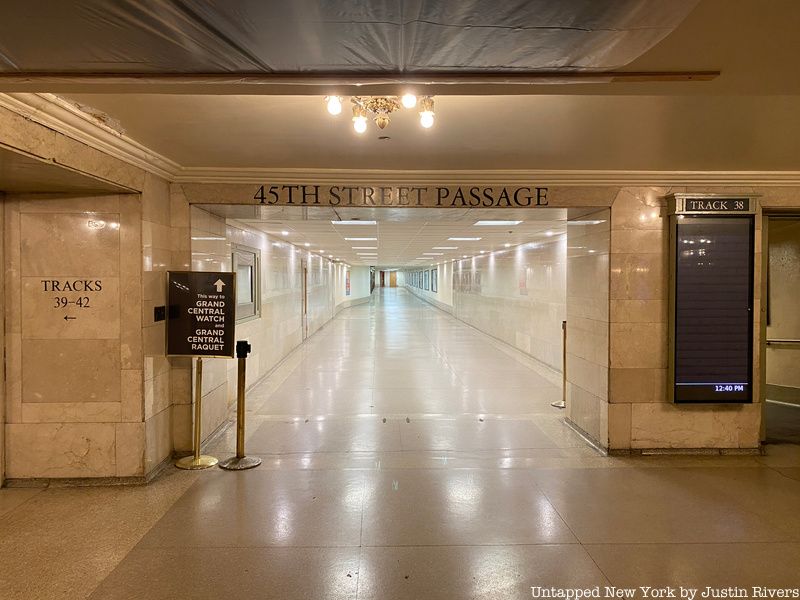
There are the wooden roll down windows of the Grand Central Watch, an obvious relic from the original construction of Grand Central. Next to it is Grand Central Racquet, where you can get your tennis racquets restrung before heading up to a match at the hidden tennis courts in Grand Central (signs currently ask you to call a phone number for service). Justin Rivers, Untapped New York’s Chief Experience Officer who leads our Grand Central tour and is regularly discovering new secrets inside the terminal says, “this passage will be a lot better used once East Side Access opens.”
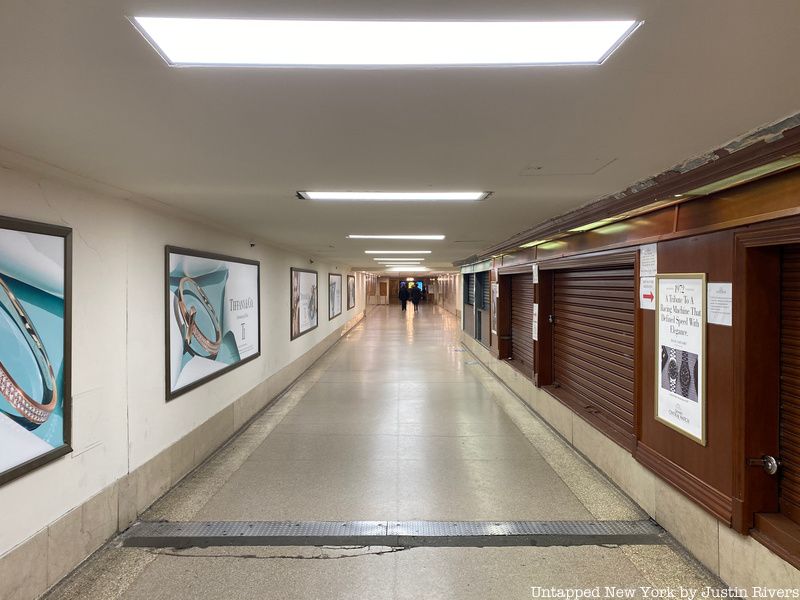
Next, check out the Top 10 Secrets of the Roosevelt Hotel. Grand Central is a place that continues to reveal more secrets and forgotten nooks and crannies every time you visit. To discover more fun discoveries like this, join us for an upcoming tour of the Secrets of Grand Central Terminal!
Subscribe to our newsletter